5. Eternal Sunshine of the Spotless Mind (2004)
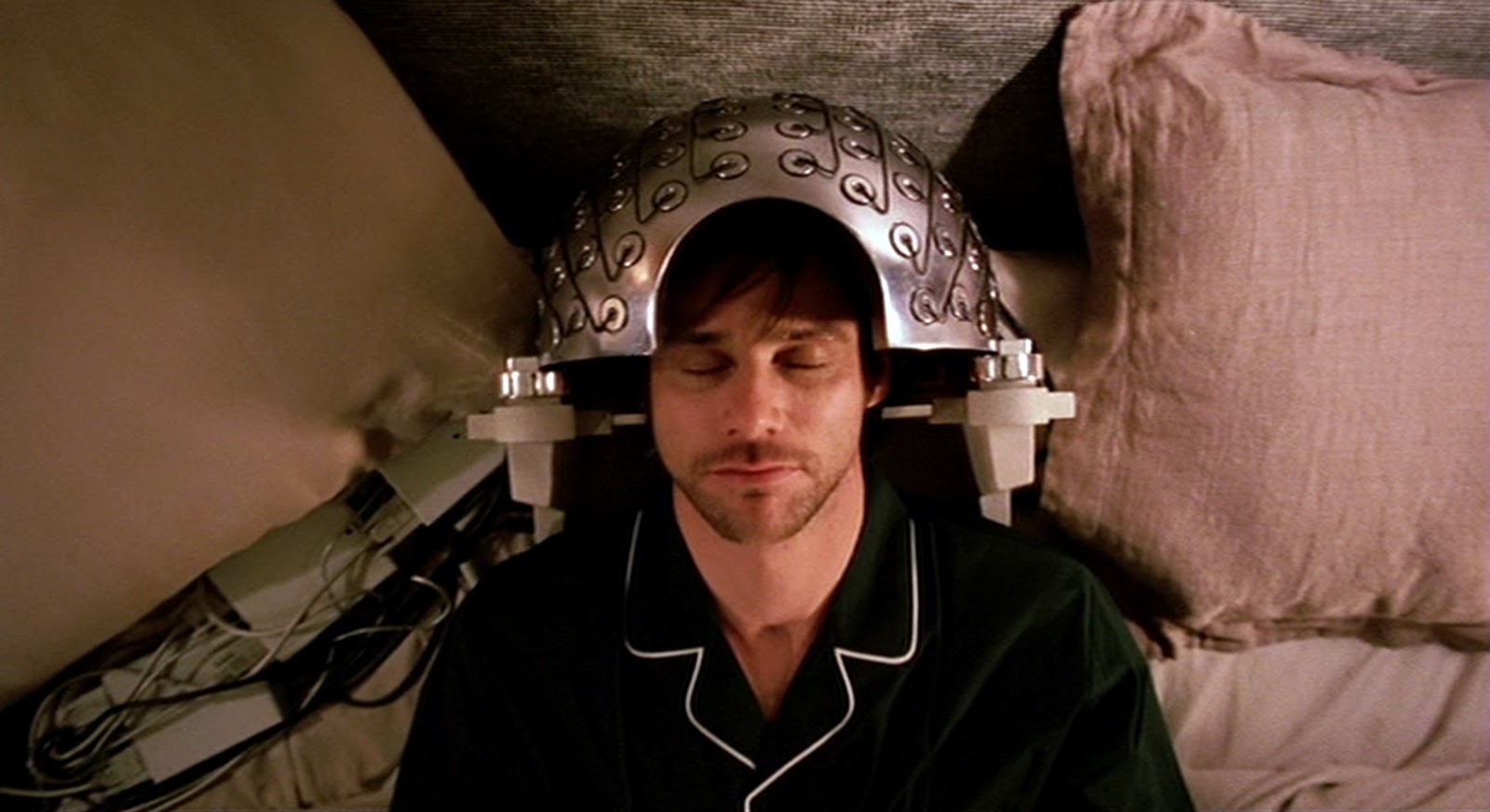
Coming into Charlie Kaufmann’s unique worlds, which are very hard to define, is one of the best experiences we can have. “Synecdoche, New York,” “Being John Malkovich” and “Anomalisa” are some of the finest evidence of his peculiar mind. In “Eternal Sunshine of the Spotless Mind,” he created a very complex and naive love story. The title of the film is from Alexander Pope’s poem “Eloisa to Abelard.”
Clementine (Kate Winslet), the ex-girlfriend of Joel Barish (Jim Carrey), has wiped out all memories of their two-year relationship with a mysterious medical intervention. Joel discovers this and gets very upset and decides to have the same procedure applied to himself.
When he falls asleep to have all of his memories wiped out, the days he lived with Clementine pass before his eyes. Joel realizes he doesn’t want to forget Clementine and tries to stop the intervention.
Kaufman depicts a surprising journey through the human consciousness, memory, and intelligence. “Eternal Sunshine” wanders against time in the depths of memories, by expressing it with the emotions of two opposing protagonists.
“Eternal Sunshine of the Spotless Mind” is a masterpiece between time and space complexity, with strong metaphors and deep ideas. Like in “Synecdoche, New York,” despite the complexity of story, Kaufmann and Michel Gondry create an addictive world that haunts the audience.
4. Arrival (2016)
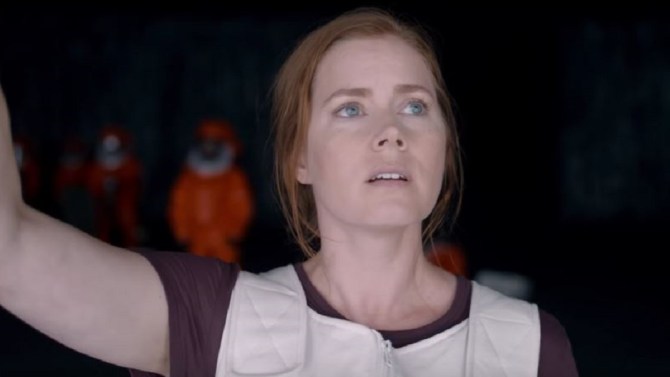
“Arrival” is another splendid film by Denis Villeneuve, which is based on Ted Chiang’s short story “Story of Your Life.”
Louise Banks is an Army linguist. When multiple spaceships land on Earth, the world is shaken. The means of communicating with the aliens whose aims are unknown begin to be sought, and so Louise is called in to contact them.
The physicist Ian Donnelly is chosen to assist the doctor, and the most important task of the duo is to determine whether the aliens are peaceful or invasive. Another challenge in this process arises as the Army insistently wants to attack.
Each new language brings about a new way of thinking. “Arrival,” by questioning the network of people through linguistics, criticizes people’s sense of self-existence, like in Sartre’s philosophy of existentialism.
“Arrival” often salutes Terrence Malick, one of the leading figures in poetic cinema. Villeneuve’s references from Malick obviously add significant pluses to the dramatic structure of the film.
Villeneuve has had outstanding success with philosophical touches from Sartre to Zen Buddhism in his film. It’s a miracle that it examines the relationship between language and thought, and we are fascinated by its great cinematography.
3. Ex Machina (2014)
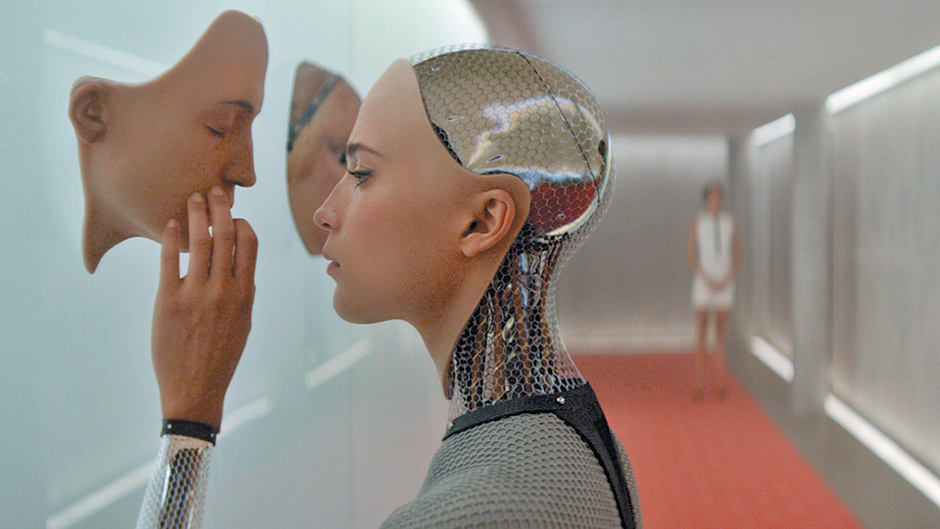
Can an artificial being ever reach human intelligence or consciousness? How can we determine the existence of an artificial consciousness? In “Ex Machina,” we constantly deal with these tough questions.
Caleb works as a software specialist, not just in Silicon Valley but for the world’s most important technology company. Nathan, the company’s mysterious CEO, lives in a private chalet away from the company and other people. Caleb wins a one-week ‘prize’ at Nathan’s chalet in a competition. But he is unaware of the experiment in which he’s getting involved. In the body of a beautiful robot girl named ‘Ava’, the world’s first true artificial intelligence waits for him.
Is Ava able to convince anyone other than her creator that she has intelligence and consciousness? In fact, this question is about an older and more fundamental issue than the idea of artificial intelligence. The discussion goes back to Plato and Descartes. I’m aware of my own consciousness. I see others behave and talk like me, but how do I know that others are conscious?
Many elements in the film, such as the characters, atmosphere, locations, cinematography and editing, are built on the function of creating unease and tension, and these elements make the film an example of a new genre of film noir.
The infidelity of the characters in the film, their mistrust, and the uncanny of the characters themselves make the audience uneasy and distrust the characters. While the film’s narrative demonstrates the danger of artificial intelligence, it actually emphasizes the destructive nature of human beings.
“Ex Machina” is a wonderful masterpiece with its inert atmosphere and perfect acting. As a visionary piece of science fiction, it has already become one of the best cult films.
2. Blade Runner 2049 (2017)
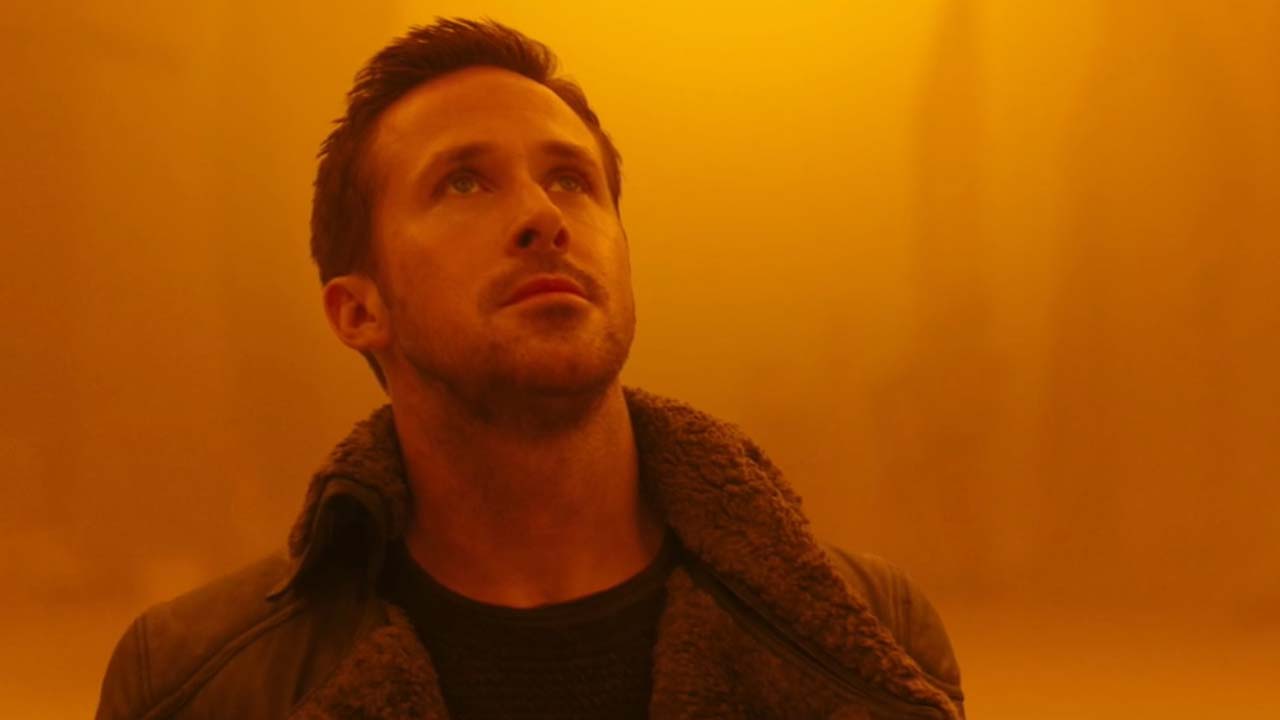
Adapted from Philip K. Dick’s novel by Ridley Scott in 1982, “Blade Runner” is a crucial cornerstone of science fiction cinema. And “Blade Runner 2049,” which comes 35 years after the first film, has become one of the most impressive sci-fi films of the 21st century, thanks to Denis Villeneuve’s (“Incendies,” “Enemy,” “Sicario”) mesmerizing philosophical and visual language.
In “Blade Runner 2049,” we follow the story 30 years after the first film. Officer K, who works for the Los Angeles Police Department, uncovers a long-hidden secret that will put the community life into chaos. In order to prevent a disaster, he must find former bounty hunter Rick Deckard and get answers to his questions.
Villeneuve creates a story that is full of darkness with dense fog and environmental pollution. A world that is physically collapsed, a main character who struggles with discrepancy and tries to bring his awareness, a highly mysterious business with relentless replicas with a sense of duty. These are perfect components to recreate the unique atmosphere of the first film. And it also manages to preserve its mystery until the finale.
And Roger Deakins is, of course, one of the biggest contributors to the creation of this dark and enchanting atmosphere. Everyone knows that the Academy doesn’t usually reward dark stories, but he finally won the Oscar for Best Cinematography for this film after 10 nominations. We also see one of the biggest performances of Ryan Gosling’s career in this film. It’s a brilliant sci-fi film, regardless of whether you like the first film.
1. Her (2013)
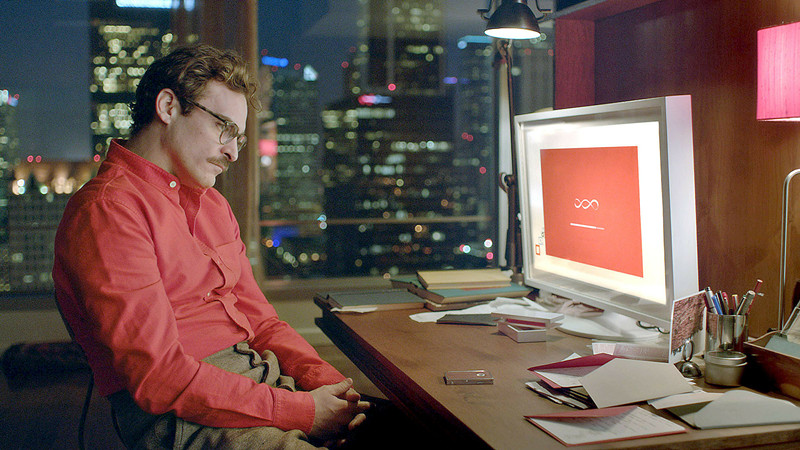
Spike Jonze (“Being John Malkovich,” “Adaptation,” “Where the Wild Things Are”) is a very special filmmaker who has made great movies that have certainly improved contemporary cinema. His touching science fiction masterpiece, “Her,” examines the lonely individuals and changing relationships of our age with developing technology in a genuine way.
We focus on the love story of Theodore, whose job is to write love letters for people. He lives with a virtual AI named Samantha who is just a voice; she introduces Theodore to a completely different reality with her questions about life and the world.
Theodore, who is in a state of severe depression, gradually begins to realize the joys of life, and the relationship between him and the AI becomes more and more bizarre.
While “Her” perfectly portrays a new form of relationship, it also goes far beyond a romantic film and positions itself as a film about the philosophy of existentialism.
Jonze often uses Theodore’s red clothes to emphasize his romantic side. In places and in wide shots, we see the dominance of red and its shades.
What is the meaning of life? Is it possible to know and determine the future? Is there a reality other than death? Are we alone in life? This flawless film tries to find answers to these endless questions by expressing shallow love thoughts and romantic film cliches.